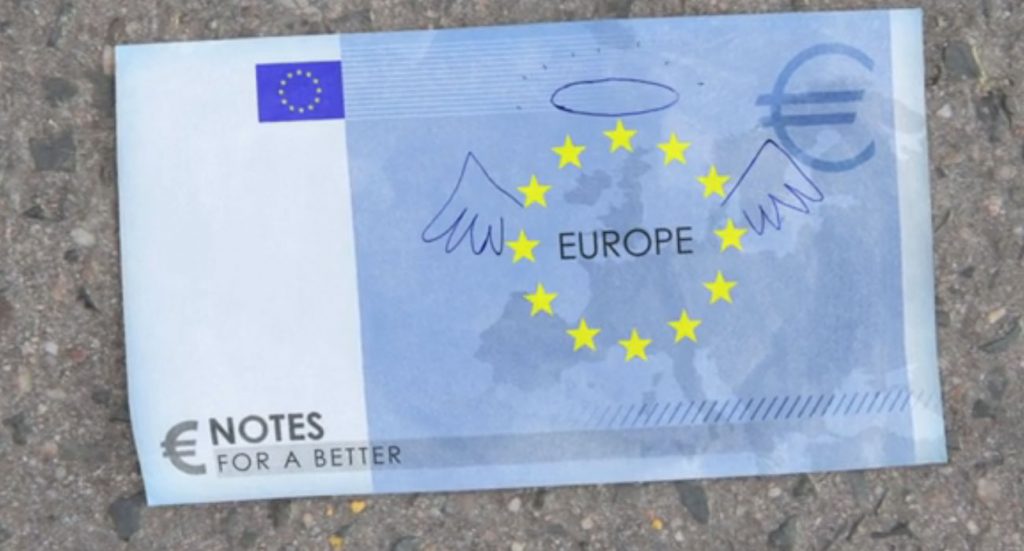Ahead of this week’s second round of negotiations to secure a deal on the European Union’s budget for 2014-2020, environment groups CEE Bankwatch Network and Friends of the Earth Europe are urging European leaders to commit to high-quality spending in Europe for the next seven years, and not sidetrack with discussions on quantity.
European spending has often been misguided and damaging as a result of investments promoting fossil fuel use, carbon-intensive projects or the destruction of nature, according to the two organisations. In times of economic and environmental crisis, quality spending on public transport, sustainable food production, renewable energy and energy efficiency projects can bolster environmental protection and deliver more sustainable economic gains.
Markus Trilling, EU Funds coordinator for CEE Bankwatch Network and Friends of the Earth Europe, said: “The new year has brought new realism about the EU budget, and the urgent need to get a deal done. However, the underlying reality remains – to meet the challenges of climate change, to boost European jobs and to put our economy on a much more sustainable footing, we need a budget deal that allows quality spending to flourish over the next seven years.”
The overall budget figure of €973 billion, proposed by European Council president Herman van Rompuy at November’s failed budget summit, will be back on the table and growing speculation suggests that compromise can be achieved around this total.
By devoting 25 percent of this overall figure to climate-related initiatives such as renewables and energy savings programmes, European spending has the potential to create millions of new jobs and cut greenhouse gas emissions, according to Bankwatch and Friends of the Earth Europe. This needs to be matched by transparent and collaborative spending plans at the national level.
Markus Trilling continued: “Improved national spending plans, alongside a guarantee for 25 percent green spending, could unlock substantial money for projects like energy savings and renewables that will cut our greenhouse gas emissions, create millions of new green jobs and reduce fuel poverty.”
“We urge EU leaders to end the uncertainty and strike a deal on the EU budget, but not one that compromises its potential to improve our shared environment and quality of life for Europe’s 500 million people. Following a deal, we need to see improved partnership between spending authorities and stakeholders, including the public, to ensure much more transparent, accountable decision making on EU spending across all corners of Europe.”
Agricultural spending still constitutes the biggest part of the EU budget. Last month, European decision makers dramatically watered down links between funding and environmental performance. Europe risks a future of intensive, environmentally and socially destructive, agriculture unless environmental performance criteria are reconnected to payments to farmers. Sufficient funding also needs to be found for the environment within national rural development programmes, according to Friends of the Earth Europe.
Stanka Becheva, food and agriculture campaigner at Friends of the Earth Europe said: “European rural areas have lost millions of farmers, and intensive agriculture practices have led to the loss of biodiversity and polluted soil and water. Heads of government can´t bury their heads in the sand in times of economic and environmental crisis. By linking payments from this budget to strict environmental conditions, and ensuring money is well spent, we can make progress towards a sustainable and green future for agriculture in Europe.”
—
NOTES:
Beyond the MFF negotiations at European level, to ensure better EU spending Bankwatch and Friends of the Earth Europe are calling for:
- Member states to elaborate national and regional investment programmes that foster the de-carbonisation of European economies, reduce the use of natural resources and protect eco-systems.
- EU budget expenditures to be disbursed in compliance with a solid ‘partnership principle’ that guarantees full transparency and the early and comprehensive involvement of all stakeholders.
- Environmental safeguard mechanisms to be in place for the EU budget, such as Strategic Environmental Assessments and ex-ante conditionalities, to ensure “no harm” to the environment.





